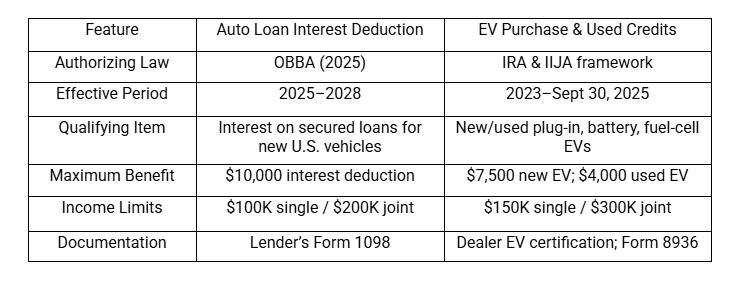Knowledgeable & Personable Counsel
Team Up With Lamarre Law Group, P.A. Today
Blog
By Leihernst Lamarre
•
May 16, 2025
Discover how new IRS rules on inherited IRAs may affect you. Learn about the annual required minimum distributions (RMDs), the looming tax penalty for missed withdrawals, and tips to manage your inherited IRA efficiently.
By Leihernst Lamarre
•
May 1, 2025
Learn how IRS Written Determination 202434006 boosts employee tax benefits by clarifying employer contributions to retirement plans, HSAs, and Retiree HRAs. Discover practical benefits and expert advice from Lamarre Law Group, P.A.
By Lamarre Law Group, P.A.
•
September 15, 2024
As a business owner, understanding and managing your tax obligations is crucial to avoid penalties and maintain financial health. Here’s what you need to know about business tax compliance in plain language: 1. Types of Business Taxes: Businesses typically owe federal, state, and sometimes local taxes. These may include income taxes, payroll taxes, sales taxes, and property taxes. Each tax type has specific filing requirements and deadlines. 2. Tax Identification Numbers: Obtaining the correct tax identification numbers (EIN, state ID) is essential for tax reporting and compliance. These numbers are used to identify your business entity to tax authorities. 3. Record Keeping: Maintaining accurate financial records is key. Keep track of income, expenses, deductions, and credits. Good record keeping not only ensures compliance but also facilitates financial planning and decision-making. 4. Filing and Payment Deadlines: Be aware of deadlines for filing tax returns and making tax payments. Missing deadlines can result in penalties and interest charges. Use reminders or software to stay organized. 5. Deductions and Credits: Explore deductions and credits available to your business. These can lower your taxable income and reduce your tax liability. Examples include deductions for business expenses and credits for research and development. 6. Sales Tax Compliance: If your business sells goods or services subject to sales tax, understand your obligations for collecting, reporting, and remitting sales taxes to the appropriate tax authorities. 7. Employment Taxes: Businesses with employees must withhold and pay payroll taxes, including federal income tax, Social Security, and Medicare taxes. Compliance with employment tax obligations is critical to avoid penalties. 8. Seek Professional Guidance: Navigating business tax compliance can be complex. Consider consulting with a tax attorney who specializes in business taxation. They can provide personalized advice, help you understand your obligations, and ensure compliance with tax laws. How We Can Help: At Lamarre Law Group, P.A., our experienced tax attorneys assist businesses with tax compliance, planning, and resolving tax disputes. Whether you’re starting a new business or need guidance with ongoing compliance issues, contact us at (833) Lamarre or visit our website to schedule a consultation.
By Lamarre Law Group, P.A.
•
September 1, 2024
Unemployment benefits provide crucial support during periods of job loss, but navigating the associated tax implications and legal considerations is essential. Here’s a clear overview to help you understand: What are Unemployment Benefits? Unemployment benefits are financial assistance provided by state governments to eligible individuals who have lost their jobs through no fault of their own. These benefits are intended to temporarily replace lost income and help with basic expenses. Taxation of Unemployment Benefits: Taxable Income: Unemployment benefits are generally considered taxable income and must be reported on your federal and state income tax returns. Withholding Options: You can choose to have federal income tax withheld from your unemployment benefits, which can help avoid a large tax bill when you file your return. State Tax Considerations: State tax laws vary, so it’s important to check whether your state taxes unemployment benefits and any specific rules that apply. Legal Considerations: Eligibility: Understanding eligibility criteria and ensuring you meet the requirements to receive unemployment benefits is crucial. Appeals and Disputes: If your unemployment benefits are denied or terminated, you have the right to appeal. Legal assistance can be valuable in navigating this process. Planning Ahead: Budgeting: Plan your budget carefully to accommodate the temporary nature of unemployment benefits and any potential tax obligations. Seek Professional Advice: Consult with a tax attorney to understand your tax liabilities, explore deductions, and ensure compliance with state and federal tax laws. How We Can Help: For personalized legal guidance on unemployment benefits, tax implications, or assistance with appeals, contact Lamarre Law Group, P.A. Our experienced attorneys are here to support you. Visit our website or call (833) Lamarre to schedule a consultation.
By Lamarre Law Group, P.A.
•
August 15, 2024
Loan forgiveness can be a huge relief for borrowers struggling with student loans or other debts. However, it’s crucial to understand the potential tax implications that come with it. Here’s a breakdown to help you navigate this complex issue: Types of Loan Forgiveness: Student Loans: Forgiveness under programs like Public Service Loan Forgiveness (PSLF) or income-driven repayment plans may result in taxable income. Mortgages and Debt Settlements: Forgiven mortgage debt or debt settled for less than the amount owed may be considered taxable income. How Loan Forgiveness is Taxed: Income Tax: The forgiven amount is generally considered taxable income in the year it’s forgiven, unless an exception applies. Exceptions: Certain situations, like forgiveness due to death or permanent disability, are typically not taxable. Preparing for Tax Consequences: Plan Ahead: Understand your tax liability and prepare for potential taxes on forgiven debt. Seek Professional Guidance: Consult with a tax attorney to explore options for minimizing tax liabilities through strategies like insolvency or other exemptions. What You Can Do: Stay Informed: Keep records of any loan forgiveness and consult with a tax professional to ensure accurate tax filing. Get Legal Advice: For personalized guidance on navigating loan forgiveness taxation and minimizing tax burdens, contact Lamarre Law Group, P.A. Our experienced attorneys are here to help. Loan forgiveness can provide financial relief, but it’s essential to address the tax implications proactively. Contact us today at (833) Lamarre or visit our website to schedule a consultation.
By Lamarre Law Group, P.A.
•
August 1, 2024
Tax season is often stressful, but it can become a nightmare if you fall victim to tax identity theft or fraud. These crimes involve someone using your personal information to file a fraudulent tax return and claim your refund. Here’s how it happens and what you can do to protect yourself: How Tax Identity Theft Occurs: Stolen Information: Your Social Security number and personal details are obtained through various means, such as data breaches or phishing scams. Filing a Fake Return: The thief uses your information to file a tax return early in the season, before you do. Receiving Refunds: They claim a refund using false information, which can delay your legitimate refund. Signs of Tax Identity Theft: Receiving a notice from the IRS about a suspicious tax return filed in your name. Problems e-filing your tax return because a return with your SSN has already been filed. Unexpectedly owing additional tax or having collection actions taken against you for a year you did not file. Protect Yourself: File Early: Beat potential thieves to the punch by filing your tax return as early as possible. Secure Your Information: Keep sensitive information like your Social Security number secure and be cautious of sharing it online or over the phone. Monitor Your Accounts: Regularly check your bank and credit card statements for any unauthorized transactions. What to Do If You’re a Victim: Report It: Contact the IRS Identity Protection Specialized Unit at 1-800-908-4490. File a Police Report: This may be necessary to resolve certain types of identity theft. Consult a Tax Attorney: Seeking legal advice can help navigate the complexities of resolving tax identity theft and any resulting issues. Don’t let tax season turn into a crisis. Stay vigilant against identity theft and fraud to safeguard your financial well-being. For personalized guidance on protecting your rights and resolving tax-related issues, contact the Lamarre Law Group, P.A. Our experienced attorneys are here to assist you. Visit our website or call (833) Lamarre today.
By Lamarre Law Group, P.A.
•
July 15, 2024
Taxes can be overwhelming, especially with the myriad of deductions, credits, and rules that change every year. At Lamarre Law Group, P.A., we're here to simplify the process and ensure you maximize your savings. In this blog post, we’ll break down some common tax deductions you might be missing and show you how we can help. Home Office Deduction If you're one of the many people working from home, you might qualify for a home office deduction. This deduction allows you to write off expenses related to the part of your home used exclusively for business. Expenses can include a portion of your rent or mortgage, utilities, and even internet costs. Charitable Contributions Donations to qualified charities are deductible, and this isn't just limited to cash donations. Non-cash donations, such as clothing or household items, can also be deducted. Remember to keep receipts or other documentation to substantiate your charitable contributions. Education Expenses If you’re pursuing education to improve your job skills, you might be eligible for deductions or credits. The Lifetime Learning Credit, for example, can reduce your tax bill by up to $2,000 annually. Similarly, the American Opportunity Tax Credit offers up to $2,500 per year for the first four years of higher education. Medical and Dental Expenses Unreimbursed medical and dental expenses that exceed 7.5% of your adjusted gross income are deductible. This includes things like doctor visits, prescription medications, and even some medical equipment. Make sure to keep detailed records of all your medical expenses throughout the year. Retirement Contributions Contributing to a retirement account like an IRA or 401(k) not only helps secure your future but can also provide significant tax benefits. Contributions to these accounts are often tax-deductible, reducing your taxable income for the year. Why Choose Lamarre Law Group, P.A.? Navigating tax deductions can be complex, and missing out on deductions means leaving money on the table. At Lamarre Law Group, P.A., we specialize in tax law and are dedicated to helping our clients maximize their deductions and minimize their tax liabilities. Our expert team will review your financial situation, identify potential deductions, and ensure your tax return is accurate and beneficial. Don’t wait until tax season to start planning. Reach out to us today for a consultation. Our friendly and knowledgeable staff are ready to assist you in person or over the phone. Contact Us Ready to maximize your tax savings? Contact Lamarre Law Group, P.A. today through our online contact form or give us a call at (833) Lamarre. Let us take the stress out of taxes so you can focus on what matters most to you. By partnering with Lamarre Law Group, P.A., you’ll have peace of mind knowing that your taxes are in expert hands. Reach out to us today and take the first step toward a stress-free tax season!
By Lamarre Law Group, P.A.
•
June 28, 2024
Hello, readers! Today, we’re going to discuss a recent development in tax law that could have significant implications for your estate planning: IRS Revenue Ruling 2023-2. This ruling addresses the tax implications of transferring assets to an irrevocable trust. But don’t worry, we’ll break it down in plain language so you can understand how it might affect you. What Is IRS Revenue Ruling 2023-2? The IRS issued Revenue Ruling 2023-2 to clarify which assets transferred by a decedent to a beneficiary receive the coveted step-up in basis to fair market value under Sec. 1014 and which do not. The ruling specifically addresses a scenario where a grantor makes a lifetime gift of certain assets to an Intentionally Defective Grantor Trust (IDGT) established for the benefit of family members. What Does This Mean for You? In simple terms, the IRS has confirmed that the gifted assets, while taxable to the grantor for income tax purposes, are not eligible for a step-up in basis upon the grantor’s death. This means that if you transfer assets to an irrevocable trust, those assets will not receive a step-up in basis, potentially resulting in higher capital gains taxes for the beneficiaries when they sell the assets. Why Is This Important? This ruling might carry an unpleasant surprise for a trust’s beneficiaries. Before clients revise their estate plans, they should understand the effect that this revenue ruling might have on their heirs. It’s crucial to consider the potential tax implications of your estate planning decisions. How Can Lamarre Law Group, P.A. Help? At Lamarre Law Group, P.A., we specialize in helping individuals and families navigate the complex world of tax law. Our team of expert tax attorneys can help you understand how IRS Revenue Ruling 2023-2 might impact your estate planning strategy and work with you to minimize potential tax liabilities. If you have any questions about IRS Revenue Ruling 2023-2 or any other tax-related matters, don’t hesitate to contact us. You can contact us via our website or call us at Lamarre. We’re here to help you make sense of the tax laws so you can make informed decisions about your financial future. Remember, the tax law is complex, but you don’t have to navigate it alone. Let the experts at Lamarre Law Group, P.A. guide you through the process. We look forward to working with you! Disclaimer: This article is for informational purposes only and does not constitute legal advice. Always consult with a qualified tax attorney before making any decisions about your personal tax situation.

By Lamarre Law Group, P.A.
•
June 14, 2024
As we approach 2025, taxpayers nationwide face a significant shift in the tax landscape. The Tax Cuts and Jobs Act (TCJA) of 2017, which brought about sweeping changes to the tax code, is set to expire. This means that, without legislative intervention, many of the provisions that taxpayers have become accustomed to will sunset, reverting to the pre-TCJA tax structure. What’s Changing? Here’s a breakdown of the key changes that will occur if the TCJA provisions expire: Individual Tax Rates: The lowered tax rates will revert to higher pre-TCJA levels. Standard Deduction: The nearly doubled standard deduction will decrease, impacting many who need to itemize deductions. Itemized Deductions: Caps on state and local tax (SALT) deductions will be lifted, and mortgage interest deductions will return to previous limits. Child Tax Credit: The increased credit amount will revert to the lower pre-TCJA amount. Personal Exemptions: The suspension of personal exemptions will end, allowing taxpayers to claim them again. Implications for Taxpayers The expiration of these provisions could lead to a more complex and higher tax burden for many. Understanding how these changes may affect your tax planning and financial strategies is essential. How Can Lamarre Law Group, P.A Help? At Lamarre Law Group, P.A., we specialize in navigating complex tax laws to maximize benefits and minimize liabilities. Our expert team is well-versed in the intricacies of the TCJA and the impending changes. We can provide personalized guidance to prepare you for the tax shifts ahead. Take Action Now Don’t wait until the last minute to adjust your tax strategy. Contact us via our online form or Lamarre to schedule a consultation. Let us help you transition smoothly into the new tax era. Disclaimer: This blog post is for informational purposes only and should not be considered legal advice. Always consult with a tax professional for personalized advice.
Schedule Your Free
15-Minute Consultation
Ready to speak with a lawyer? Complete the attached form, or give Lamarre Law Group, P.A. a call to get started.
Lamarre Law Group is a virtual office, schedule a meeting for Zoom, Microsoft Teams, Google Meets or by phone.
Lamarre Law Group, P.A.
Hours
Sun: Closed
Mon: 9:00 AM - 5:30 PM
Tue: 9:00 AM - 5:30 PM
Wed: 9:00 AM - 5:30 PM
Thu: 9:00 AM - 5:30 PM
Fri: 9:00 AM - 5:30 PM
Sat: Closed
Leave A Review
Get Directions
Contact Us
Thank you for contacting us.
We will get back to you as soon as possible.
We will get back to you as soon as possible.
Oops, there was an error sending your message.
Please try again later.
Please try again later.


